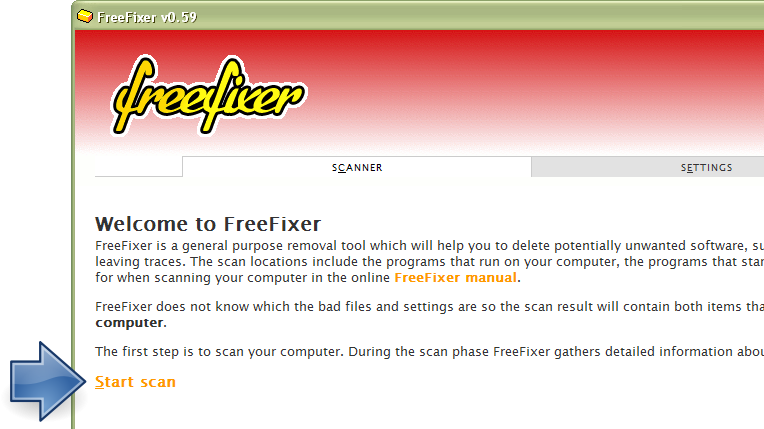What is dll_x64[1].bin?
dll_x64[1].bin is part of Microsoft® Windows® Operating System and developed by Microsoft Corporation according to the dll_x64[1].bin version information.
dll_x64[1].bin's description is "Windows HTTP Services"
dll_x64[1].bin is usually located in the 'c:\users\%USERNAME%\appdata\local\microsoft\windows\inetcache\ie\soc5usng\' folder.
Some of the anti-virus scanners at VirusTotal detected dll_x64[1].bin.
If you have additional information about the file, please share it with the FreeFixer users by posting a comment at the bottom of this page.
Vendor and version information [?]
The following is the available information on dll_x64[1].bin:
| Property | Value |
|---|---|
| Product name | Microsoft® Windows® Operating System |
| Company name | Microsoft Corporation |
| File description | Windows HTTP Services |
| Internal name | winhttp.dll |
| Original filename | winhttp.dll |
| Legal copyright | © Microsoft Corporation. All rights reserved. |
| Product version | 10.0.14393.1770 |
| File version | 10.0.14393.1770 (rs1_release.170917-1700) |
Here's a screenshot of the file properties when displayed by Windows Explorer:
| Product name | Microsoft® Windows® Operating System |
| Company name | Microsoft Corporation |
| File description | Windows HTTP Services |
| Internal name | winhttp.dll |
| Original filename | winhttp.dll |
| Legal copyright | © Microsoft Corporation. All rights.. |
| Product version | 10.0.14393.1770 |
| File version | 10.0.14393.1770 (rs1_release.170917-.. |
Digital signatures [?]
dll_x64[1].bin is not signed.
VirusTotal report
41 of the 67 anti-virus programs at VirusTotal detected the dll_x64[1].bin file. That's a 61% detection rate.
| Scanner | Detection Name |
|---|---|
| Ad-Aware | Trojan.BHOInt.1 |
| AegisLab | Troj.Win64.Chs!c |
| ALYac | Trojan.BHOInt.1 |
| Antiy-AVL | Trojan/Win32.BTSGeneric |
| Arcabit | Trojan.BHOInt.1 |
| Avast | Win64:Malware-gen |
| AVG | Win64:Malware-gen |
| Avira | TR/AD.Socelars.weuyz |
| AVware | Trojan.Win32.Generic!BT |
| BitDefender | Trojan.BHOInt.1 |
| CAT-QuickHeal | Trojan.Win64 |
| Comodo | UnclassifiedMalware |
| CrowdStrike | malicious_confidence_100% (D) |
| Cylance | Unsafe |
| Emsisoft | Trojan.BHOInt.1 (B) |
| Endgame | malicious (high confidence) |
| ESET-NOD32 | a variant of Win64/Spy.Socelars.A |
| F-Secure | Trojan.BHOInt.1 |
| Fortinet | W64/Socelars.A!tr.spy |
| GData | Trojan.BHOInt.1 |
| Ikarus | Win32.Outbreak |
| Jiangmin | Trojan.CHS.al |
| K7AntiVirus | Spyware ( 0052008a1 ) |
| K7GW | Spyware ( 0052008a1 ) |
| Kaspersky | Trojan.Win64.CHS.v |
| MAX | malware (ai score=100) |
| McAfee | Artemis!7753EC000F5A |
| McAfee-GW-Edition | Artemis |
| Microsoft | TrojanSpy:Win32/SocStealer!rfn |
| MicroWorld-eScan | Trojan.BHOInt.1 |
| NANO-Antivirus | Trojan.Win64.Socelars.evwres |
| Panda | Trj/CI.A |
| Qihoo-360 | Win32/Trojan.e1b |
| Symantec | Trojan.Gen.2 |
| Tencent | Win64.Trojan.Chs.Ahep |
| TrendMicro | TROJ_GEN.R03BC0WLA17 |
| TrendMicro-HouseCall | TROJ_GEN.R03BC0WLA17 |
| VIPRE | Trojan.Win32.Generic!BT |
| Webroot | W32.Trojan.Gen |
| Zillya | Trojan.CHS.Win64.5 |
| ZoneAlarm | Trojan.Win64.CHS.v |
dll_x64[1].bin removal instructions
The instructions below shows how to remove dll_x64[1].bin with help from the FreeFixer removal tool. Basically, you install FreeFixer, scan your computer, check the dll_x64[1].bin file for removal, restart your computer and scan it again to verify that dll_x64[1].bin has been successfully removed. Here are the removal instructions in more detail:
- Download and install FreeFixer: http://www.freefixer.com/download.html
- When the scan is finished, locate dll_x64[1].bin in the scan result and tick the checkbox next to the dll_x64[1].bin file. Do not check any other file for removal unless you are 100% sure you want to delete it. Tip: Press CTRL-F to open up FreeFixer's search dialog to quickly locate dll_x64[1].bin in the scan result.



 c:\users\%USERNAME%\appdata\lo..oft\windows\inetcache\ie\soc5usng\dll_x64[1].bin
c:\users\%USERNAME%\appdata\lo..oft\windows\inetcache\ie\soc5usng\dll_x64[1].bin 
- Restart your computer.
- Start FreeFixer and scan your computer again. If dll_x64[1].bin still remains in the scan result, proceed with the next step. If dll_x64[1].bin is gone from the scan result you're done.
- If dll_x64[1].bin still remains in the scan result, check its checkbox again in the scan result and click Fix.
- Restart your computer.
- Start FreeFixer and scan your computer again. Verify that dll_x64[1].bin no longer appear in the scan result.
Hashes [?]
| Property | Value |
|---|---|
| MD5 | 7753ec000f5a50e35f11786e52ed4efa |
| SHA256 | 5619d6612e203668646a5a05b9a5ff960cde3f9aa19df0b175a96b4e37f24a06 |
What will you do with dll_x64[1].bin?
To help other users, please let us know what you will do with dll_x64[1].bin:
Comments
Please share with the other users what you think about this file. What does this file do? Is it legitimate or something that your computer is better without? Do you know how it was installed on your system? Did you install it yourself or did it come bundled with some other software? Is it running smoothly or do you get some error message? Any information that will help to document this file is welcome. Thank you for your contributions.
I'm reading all new comments so don't hesitate to post a question about the file. If I don't have the answer perhaps another user can help you.
No comments posted yet.
![41 of the 67 anti-virus programs detected the dll_x64[1].bin file.](/static/charts/pie/detected/61.png?file=dll_x64%5B1%5D.bin)

